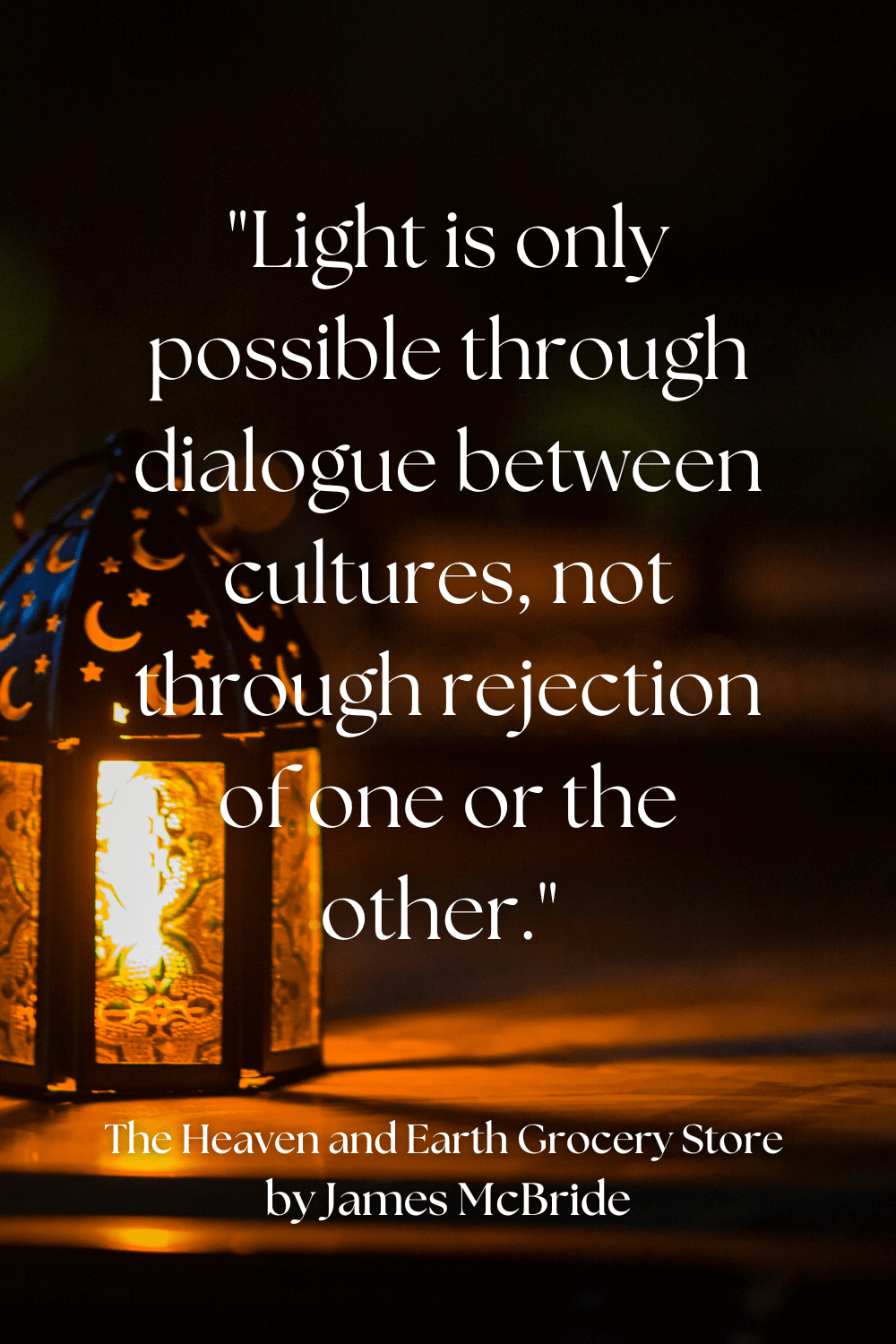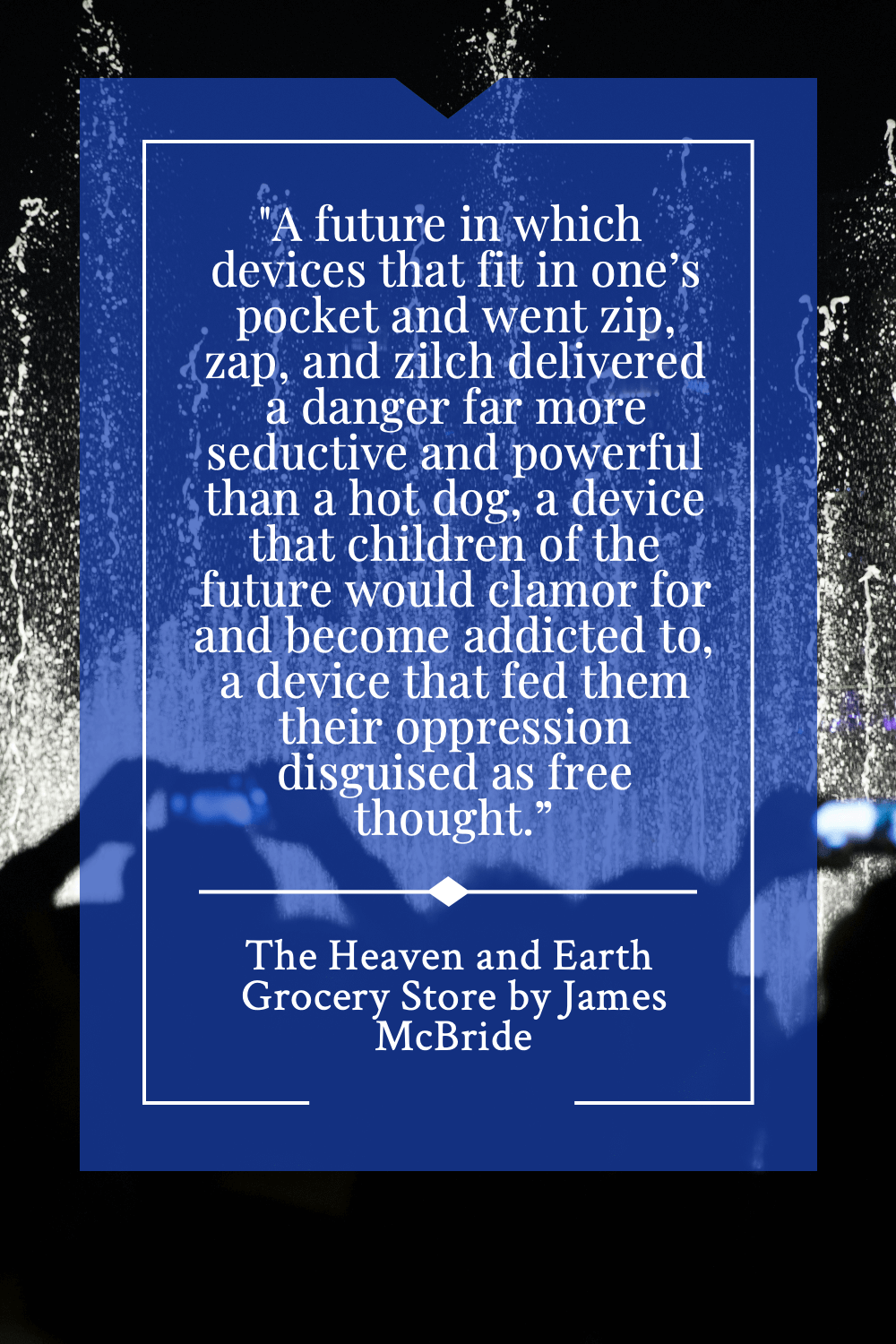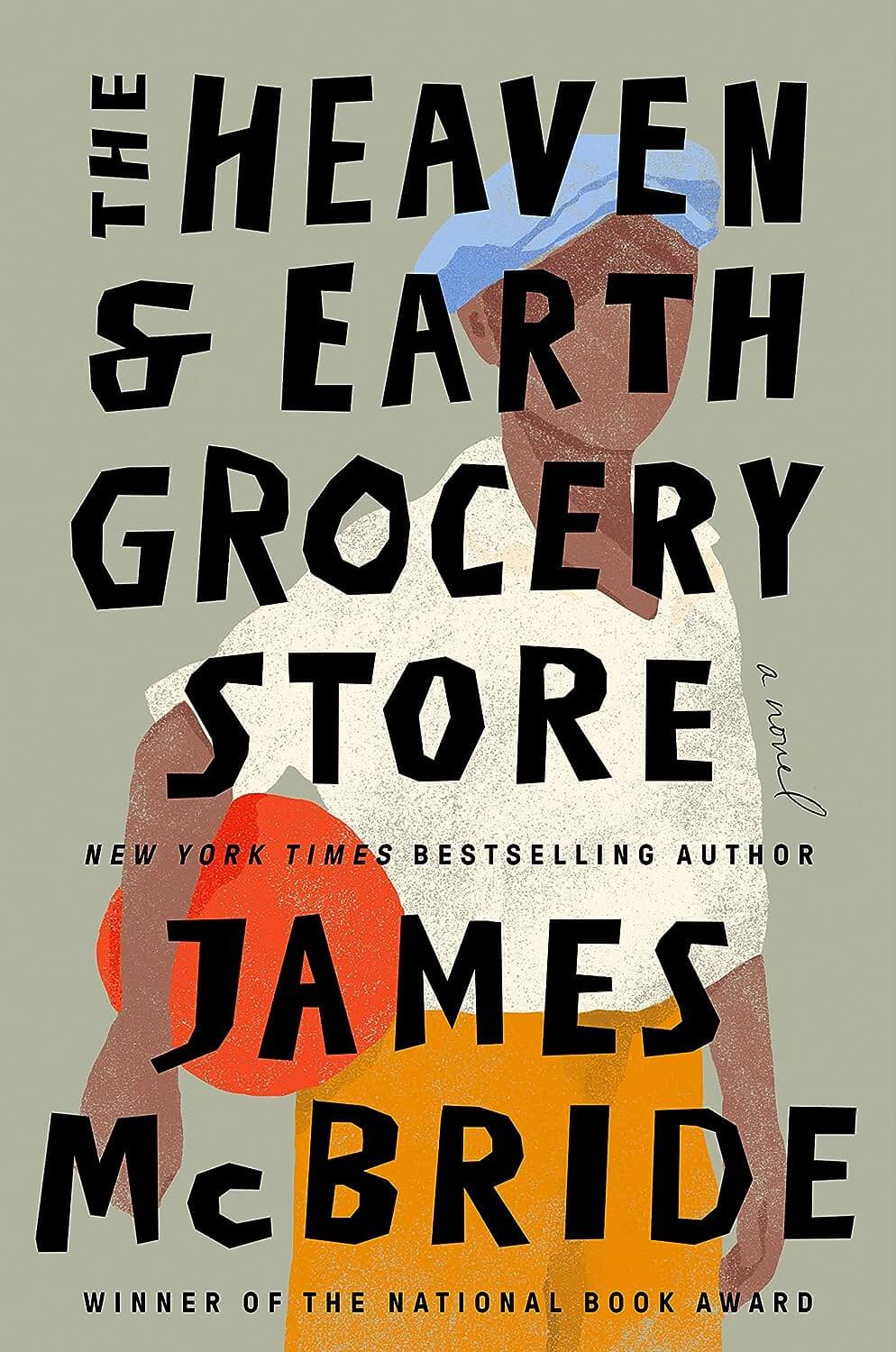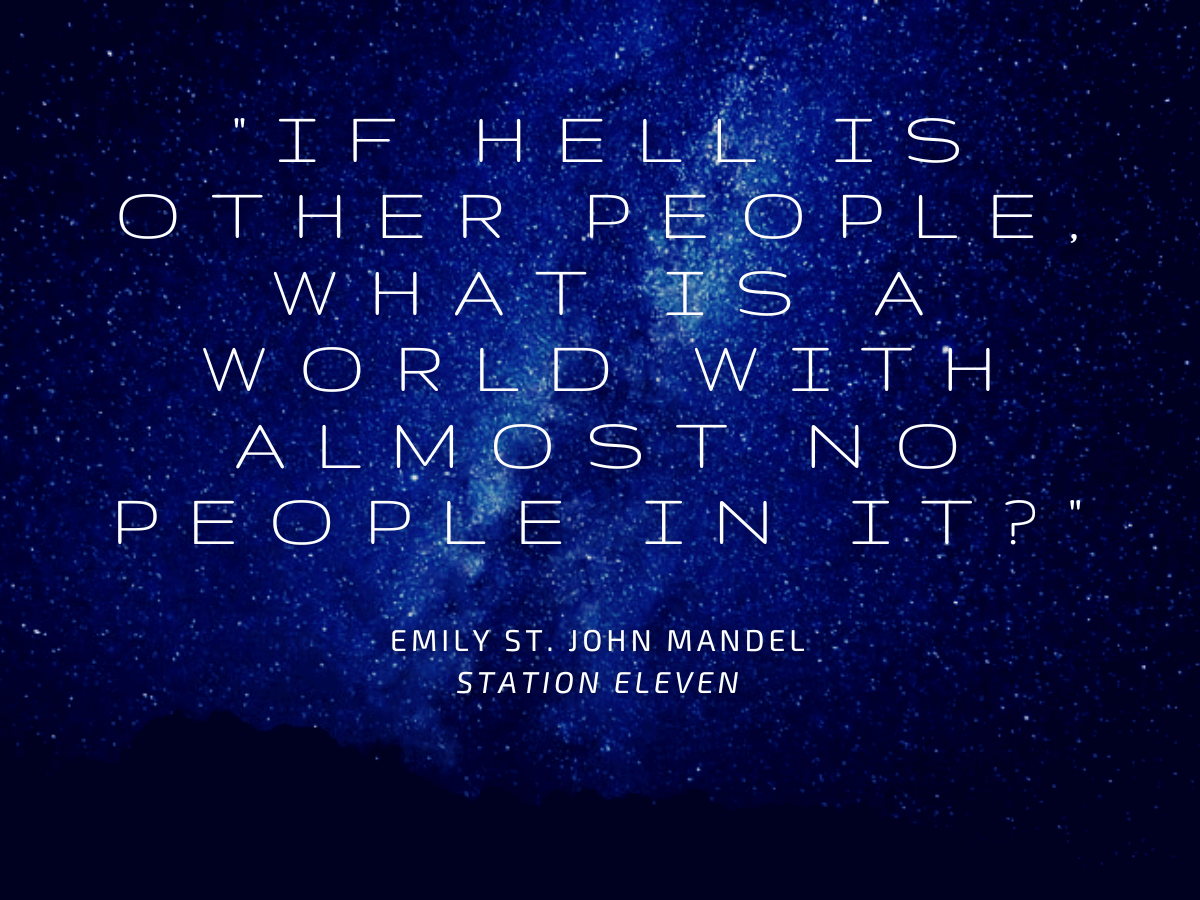The Heaven and Earth Grocery Store by James McBride is a beautifully written book, yet its message is so heavy. Heavy with the collective pain and weight of so many generations and races of people who have suffered simply due to their religion or the color of their skin or both. The book is a hybrid combination of all that uplifts and all that wears us down as human beings. Heaven and Earth.
The Heaven and Earth Grocery Store also reminded me of why it is so important for us all to read. I will never live in another time than my own, but it is important to understand the past and how that past treated the people of that time. I can never walk in the shoes of someone who is a different race than my own, but reading about their experiences helps to expand my empathy and hopefully lead to a better understanding and communication.
These glimpses into different lives and experiences help us learn to truly see each other and discover the human capacity for love and kindness rather than doubling down on the seemingly neverending human capacity for hate.
15 Top Quotes from The Heaven and Earth Grocery Store by James McBride
1. “Heaven & Earth Grocery Store, the sole Jewish grocery in Chicken Hill.” (pg. 13)
2. “Cripples, Moshe thought, have brought me fortune: Moses, Chona, and Chick.” (pg. 21)
3. “This area is poor. Which we are not. It is Negro. Which we are not. We are doing well!” “Because we serve, you see? That is what we do. The Talmud says it. We must serve.” (pg. 27)
4. “She forgave him only after he presented her with a volume of the Shulchan Arch, which spelled out the seven requirements of Jewish life: wisdom, meekness, fear of God, love of truth, love of people, possession of a good name, and dislike of money.” (pg. 28)
5. “The Negroes of Chicken Hill loved China. They saw her not as a neighbor but as an artery to freedom, for the recollection of Chona’s telltale limp as she and her childhood friend, a tall, gorgeous, silent soul named Bernice Davis, walked down the pitted mud roads of the Hill to school each morning was stamped in their collective memory. It was proof of the American possibility of equality: we all can get along no matter what, look at those two.” (pg. 30 – 31)
6. “He read the Word now to keep her alive, and in doing so, a part of him came alive as well.” (pg. 32)
7. “He was a man without a country living in a world of ghosts, for having no country meant no involvement and not caring for a thing beyond your own heart and head, and ghosts and spirits were the only thing certain in a world where your existence was invisible.” (pg. 45)
8. “Americans cared about money. And power. And government. Jews had none of those things; their job was to tread lightly in the land of milk and honey and be thankful that they were free to walk the land without getting their duffs kicked–or worse. Life in America was hard, but it was free, and if you worked hard, you might gain some opportunity, maybe even open a shop or business of some kind.” (pg. 62)

9. “Light is only possible through dialogue between cultures, not through rejection of one or the other.” (pg. 70)
10. “I think the Negroes have the advantage in this country.” “How’s that?” “At least they know who they are.” (pg. 71)
11. “He was a true Jew, a man of ideas and wit who understood the meaning of celebration and music and that the blend of those things meant life itself.” (pg. 223)

12. “…Chona had smelled not a hot dog but the future, a future in which devices that fit in one’s pocket and went zip, zap, and zilch delivered a danger far more seductive and powerful than a hot dog, a device that children of the future would clamor for and become addicted to, a device that fed them their oppression disguised as free thought.” (pgs. 229 – 230)
13. “But American history is not meant to be pretty. It is plain. It is simple. It is strong and truthful. Full of blood. And guts. And war.” (pg. 253)
14. “She did not experience the world as most people did. To her, the world was not a china closet where you admire this and don’t touch that. Rather, she saw it as a place where every act of living was a chance for tikkun olam, to improve the world. The tiny woman with the bad foot was all soul. Big.” (pg. 278)
15. “It was over in no time and she was gone. Just like that. And the absence of her meant a thousand tomorrows empty of whatever promise they had once held.” (pg. 279)


